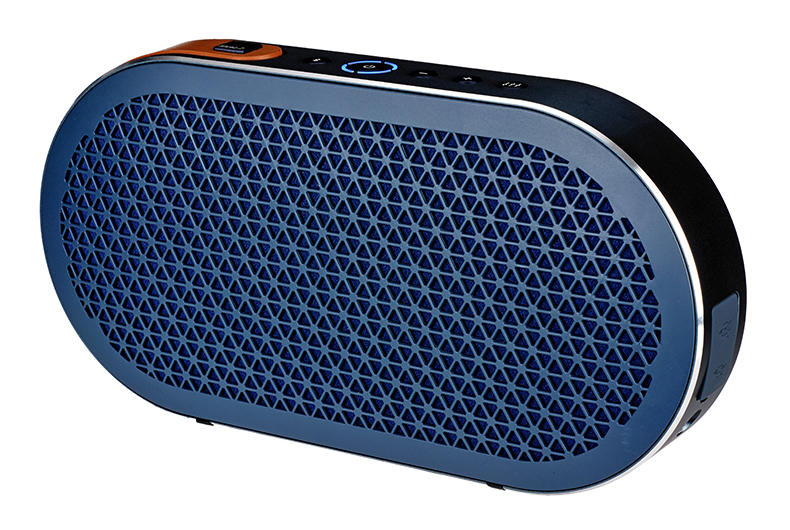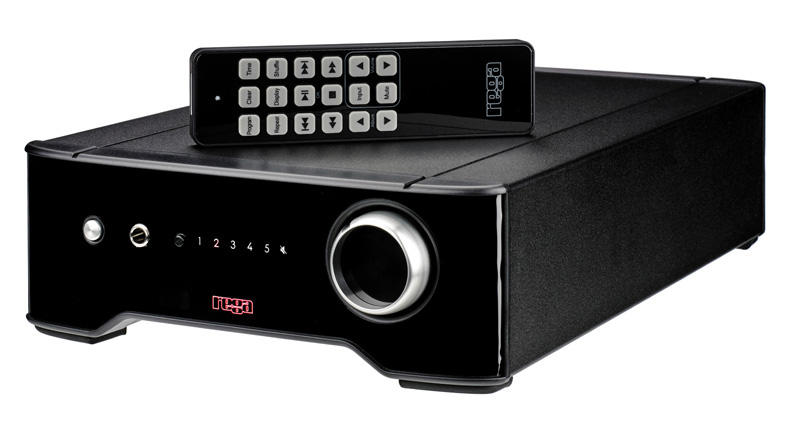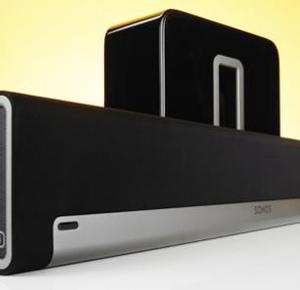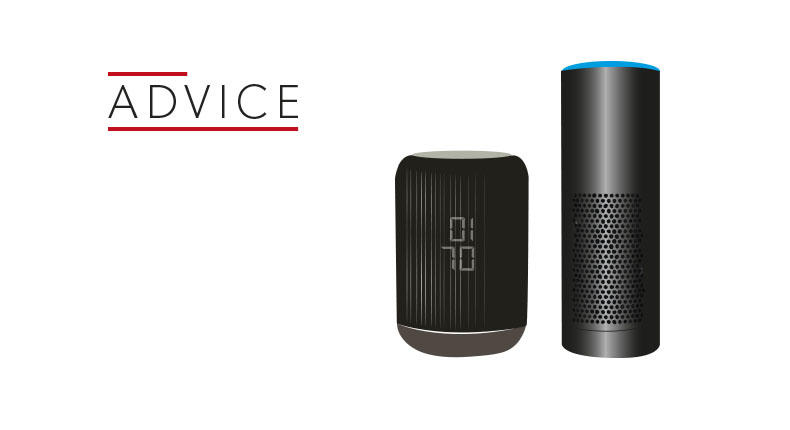
The fastest-growing trend in the tech world is smart speakers. But what exactly is a smart speaker? What does it do? Should you get one? We spill the beans...
When Amazon unveiled its Echo speaker with Alexa voice-control in 2016, we took one step closer to realising our sci-fi dreams of controlling the tech in our lives with simple voice commands.
Fast-forward to 2018 and smart speakers are pretty much a household staple. In the last two years, Amazon has brought out more versions of its Echos, Google has released smart speakers with its own voice assistant built in, Apple's much-vaunted Siri-controlled HomePod finally hit the shops (but wasn't selling too well and has been updated already) and Sonos is making a sizable dent with its One speaker and newly launched Beam soundbar.
The world is full to the brim with smart speakers these days - and they're just getting started. But what exactly is a smart speaker? What can you do with it, and should you buy one? Read on to find out...
What is a smart speaker?
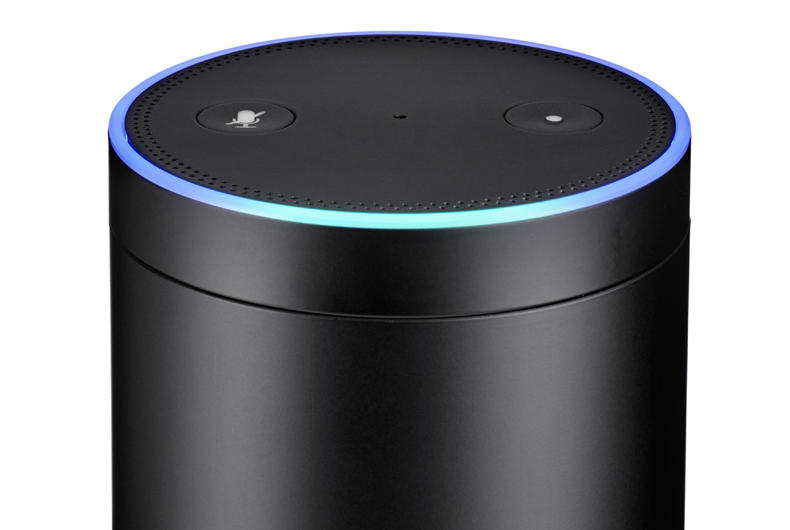
Technically, a speaker capable of anything beyond just emitting sound can be labelled as ‘smart’.
So the fact wireless speakers feature Bluetooth, NFC, speakerphone abilities and can be controlled by apps already make them smart speakers.
But for our purposes, and because the tech industry in general is going with this description, ‘smart speakers’ are wireless speakers with voice-control built into them. Basically, if you can shout commands at your wireless speaker to make it do things, it’s a smart speaker.
Smart speakers tend to be single-unit wireless speakers (or a soundbar), and have artificial intelligence (AI) from Amazon, Apple, Google, Microsoft or Samsung (so far) built into them.
These come in the form of voice-controlled personal assistants, with the most popular being Amazon’s Alexa and Google’s Google Assistant. Apple’s Siri is, of course, the brains behind the HomePod speaker, while Cortana is Microsoft's offering. And Samsung is still asserting its own Bixby-powered smart speaker will arrive later in 2018.
What can a smart speaker do?
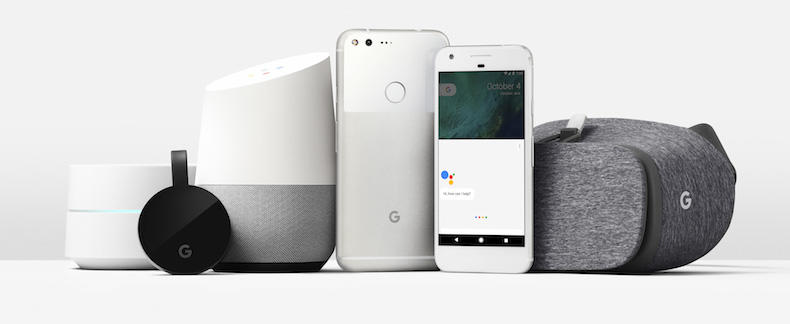
You can ask your smart speaker to play a song or playlist. You can ask it to set a timer while baking a soufflé. You can control your AV system. You can ask it to turn down the lights in your room, turn up the heating, ask for the weather report, check the traffic, book an Uber, tell it to create a to-do list or get it to tell you a joke.
If you’re thinking this sounds exactly like having your own digital butler à la Iron Man’s JARVIS, well, you’re not far off.
All you have to do is say the magic words - ‘OK Google’, ‘Alexa’ or ‘Hey Siri’ - and your smart speaker will prick its ears up and wait to hear your command.
What you can do with a smart speaker depends largely on which AI your speaker has inside it - Alexa, Google Assistant and Siri work in different ways and work with different apps and services – and the extent of your smart home.
Alexa and Google Assistant both work with the big ones: Spotify Connect (you'll need a Premium account to voice-control streaming), TuneIn Radio, Philips Hue, Nest, Samsung SmartThings, IFTTT (If This Then That), Kayak and, naturally, Domino’s Pizza.
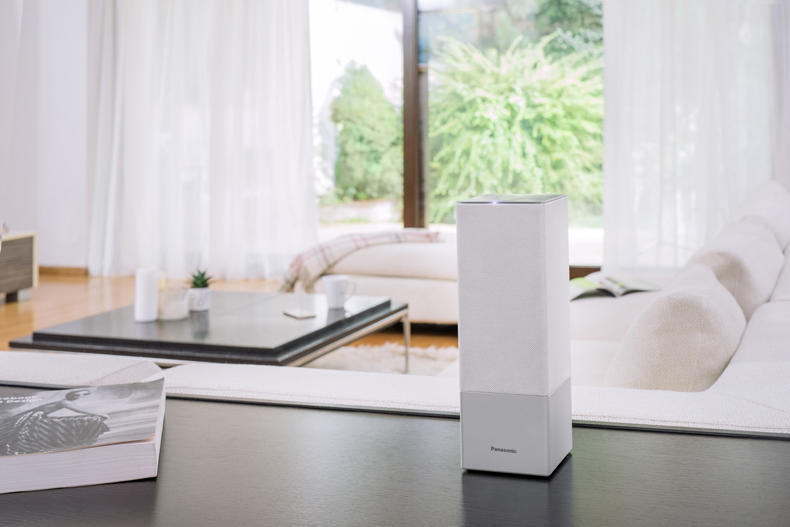
Alexa has the upper hand in having more ‘skills’ and working with a greater and broader variety of third-party apps (such as National Rail Enquiries, Just Eat, Uber, Lyft, Hive, Expedia, Fitbit, Tube status updates and Amazon Music). It even works with Google Calendar.
Google Assistant, meanwhile, doesn’t fully support all of Google’s services (you can't get it to read or compose emails through Gmail, and it won't recognise all the Calendars available), but it does have the world’s most powerful search engine at its disposal. So it’s better at answering your questions and providing useful information.
It also works with Google Play Music, iHeart Radio, The Food Network and, best of all, through Chromecast and its compatible products, you can voice-control YouTube and Netflix videos on your TVs (but not, so far, Google's own Play Movies or Amazon Prime Video). Another boon is being able to call anyone for free (using wi-fi) using Google voice commands.
Apple's typically closed ecosystem means Siri's scope is more limited. On the music side, Siri is only compatible with Apple Music (and Apple's Beats 1 radio station) on the HomePod. There's no voice control for third-party music apps like Spotify, nor for any BBC or internet radio stations. Smart home aspects that you could always control via Apple HomeKit - such as Philips Hue lights and more - are supported, and you can use Siri with native iOS apps in the same way you do on iPhones and iPads.
Most smart speakers still function as basic wireless speakers, of course. You can stream songs to them via Bluetooth and/or AirPlay if you're not using voice control, and a lot of them now support multi-room streaming.
What are the alternatives?
The first smart speakers, Amazon Echo and Google Home, prioritised ‘smart’ aspects over audio performance. We aren't huge fans of the way they sound, and wouldn't recommend them as the main music source in your home.
But that tide is changing. While certain new smart speakers haven't lived up their promise of better sound quality (sorry Sony LF-S50G), others, such as the Apple HomePod, Sonos Oneand Ultimate Ears Megablast have shown sound quality needn't take a back seat - they can function as great-sounding wireless speakers in their own right. The HomePod takes it one step further, with its excellent audio performance outstripping its smarts.
Similarly, if you’re not fussed about controlling your music using voice commands and simply want a good wireless speaker with good sound quality, you’re spoilt for choice in that department.
There are some fantastic wireless speakers in every shape, size and price range - read our handy guide to finding the perfect wireless speaker for you.
Plenty of existing wireless speakers, such as the Libratone Zipp and UE Boom 2, have added basic Alexa voice control (you'll need to update the software or app), so if you’re on the lookout for a good-sounding wireless speaker and want to simply try out the voice-control aspect, you don’t need to go all-in on a dedicated smart speaker.
Alternatively, if you're only interested in the voice control element of smart speakers, you can simply add the puck-sized Amazon Echo Dot or Google Home Mini (both just £50) to your existing music system. They'll give you all the smart features of their full-sized versions, but you won't need to depend on them for sound quality.
What smart speakers are available?
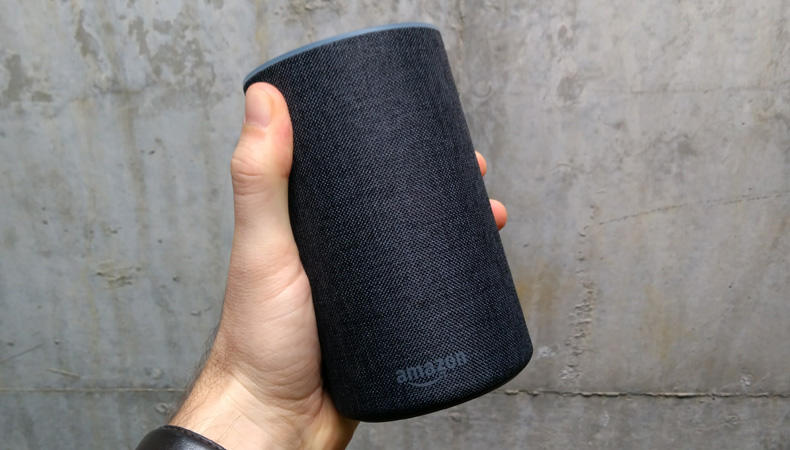
But if you have your heart set on a smart speaker, here's a list of all the products currently available or coming soon on the market.
If you're keen on Amazon's Alexa AI, these are the speakers for you:
Sonos One
Five stars / Tested at £200
The much anticipated Sonos One is essentially a Play:1 with great Alexa integration - it sounds great, it looks great (additional colours cost £30 more), and comes with all the benefits of Sonos's multi-room ecosystem alongside the Alexa smarts. Crucially, Alexa works with Spotify now, and the One is the most well-specified and versatile smart speaker we've encountered yet.
Ultimate Ears Blast and Megablast
Five stars / Tested at £200 and £270
Ultimate Ears' two new Bluetooth speakers are the first portable speakers to support Alexa voice control. Alexa aside, they've retained all the best qualities that we've come to love about UE speakers: excellent portability, rugged build, and fun, easy to use features. Oh, and punchy, enthusiastic, 360-degree sound that's immensely fun to listen to - they're among the best smart speakers around.
Amazon Echo 2
Four stars / Tested at £90
Amazon started the whole smart speaker trend with the clever Echo. The next-gen Echo is smaller, cheaper and a whole lot smarter when controlling your smart home. It's not the greatest Bluetooth speaker in terms of sound, though. Its bigger brother, the Echo Plus (£140), offers slightly better sound for a higher price.
Other Alexa-powered smart speakers include the Amazon Echo Spot, Harman Kardon Allure, Libratone Zipp (2015), Onkyo P3, Pioneer Elite F4, KitSound Voice One, Tibo Choros Tap, and Ultimate Ears Boom 2 and Megaboom.
Prefer Google Assistant? Here are the speakers you'll want to check out:
Google Home
Three stars / Tested at £130
Don't use the Google Home speaker for its so-so sound, use it for its Chromecast streaming and multi-room abilities. A new premium version (called Google Home Max) and a smaller £50 Google Home Mini are also part of Google's smart family.
LG WK7
Four stars / Tested at £200
If you like using Google Assistant for its smarts but want better sound, this LG ticks that box. Partnered with audio brand Meridian, LG's first smart speaker plays hi-res 24-bit/192kHz files, has Chromecast built-in, and has an expansive, punchy and detailed sound that's worth auditioning.
Sony LF-S50G
Three stars / Tested at £200
It's not a sexy name, but the Sony's first smart speaker ticks a lot of boxes: wi-fi, Bluetooth, gesture controls, splash-proof cover in two colours (black or white) and excellent smart speaker features. But despite its 360-degree design promising better sound quality, we were left unimpressed by its lacklustre, out-of-depth sound at this price.
Panasonic SC-GA10
£229 / available now
Panasonic has gone for something a little different in the design stakes - it's cuboid rather than cylindrical. Interestingly, the GA10 features Tidal alongside the usual Spotify and TuneIn Radio music sources.
Other Google Assistant-enabled speakers include the JBL Link View, JBL Links 10, 20 and 300, Polk Assist, Onkyo G3, Zolo Model Zero, and Panasonic SC-HC2020 micro-system, while the Sonos One will add it later this year.
If you're more of an Apple fan, then your choice is simple:
Apple HomePod
Five stars / Tested at £319
Apple's pricey HomePod only works for Apple users with an Apple Music subscription - but it's easily the best-sounding smart speaker we've tested so far. The 360-degree design is packed with intelligent audio technology, Siri is an intuitive curator for music discovery, and you can also pair two HomePods together for a good stereo set up and employ multi-room streaming via AirPlay 2.
Can't decide which AI you like? Sonos will be carrying all three voice assistants in the Sonos One and new Sonos Beam (£399) soundbar. Alexa comes out of the box, Siri will be available in July, and Google Assistant integration is coming later this year too.







